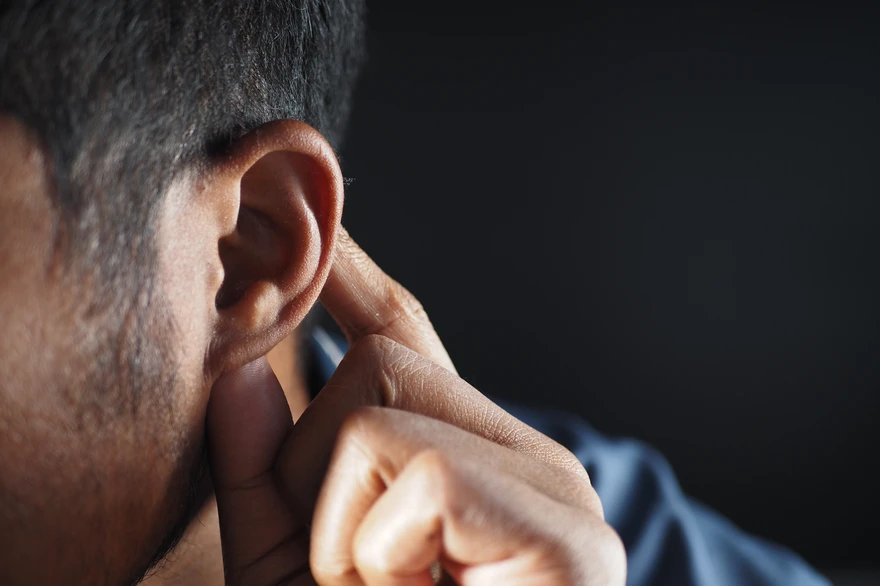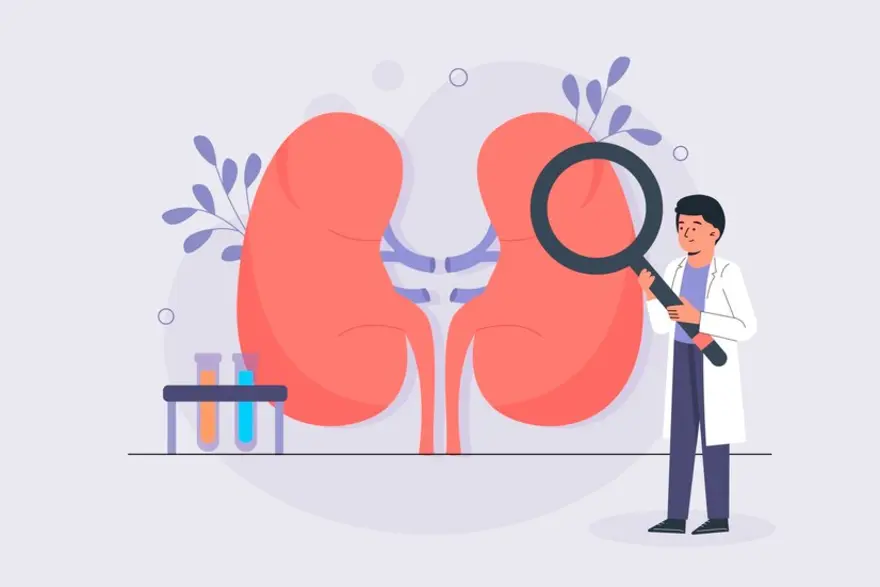Preventive Healthcare
Trigeminal Neuralgia: Symptoms, Causes, Treatments and More
85 Views
0

Living with pain can be an daunting experience. If the pain can be sudden, severe, and primarily affects the face, it could be a medical condition called Trigeminal Neuralgia. This condition can significantly disrupt daily life, as simple activities like chewing, talking, or even smiling can provoke intense pain. But don’t worry; this article intend to help you understand Trigeminal Neuralgia, covering its symptoms, causes, and possible treatment options. We will also discuss strategies to effectively manage your symptoms, enabling you to maintain a near-normal life despite this condition.
What is Trigeminal Neuralgia?
Trigeminal neuralgia (TN) is a neuropathic condition which is characterised by an intense facial pain that can severely disrupt daily activities. The root cause of this disorder lies in the trigeminal nerve, which is situated near the brainstem. This nerve plays a crucial role in transmitting sensation to your face and head. Pain associated with trigeminal neuralgia can be triggered by simple actions such as talking, chewing, or even brushing your teeth. Although it is not life-threatening, the condition can profoundly affect your quality of life, leading to significant challenges in your lifestyle and emotional well-being. Pursuing an appropriate treatment can help manage symptoms effectively.
How common is Trigeminal Neuralgia?
Trigeminal neuralgia affects approximately 0.03% to 0.3% of the global population, with women being three times more likely to experience it than men. While it typically begins in people over 50, it can occur at any age, affecting individuals of any age, from various backgrounds and lifestyles.
What are the Symptoms of Trigeminal Neuralgia?
The main symptom of trigeminal neuralgia is intense facial pain, often described as an electric shock or stabbing sensation. This pain typically affects one side of the face and may be accompanied by muscle spasms during attacks.
Between these painful attacks, patients might experience various sensations, including:
- Burning sensations: A persistent feeling of burning in the face, often uncomfortable.
- Throbbing: Intermittent, pulsing pain that can disrupt concentration.
- Numbness: A feeling of loss of sensation in the facial area, which may accompany pain.
- Dull aches: Continuous, less intense pain that can be draining and affect daily activities.
There are two types of trigeminal neuralgia, distinguished by their symptoms:
- Classic Trigeminal Neuralgia: Characterised by sudden, severe bursts of shooting facial pain.
- Atypical Trigeminal Neuralgia: Involves a constant burning sensation paired with sharp pain.
Trigeminal Neuralgia Symptom Triggers
Symptoms can be triggered by simple facial movements or everyday activities, making the condition particularly challenging to manage.
Common triggers include:
- Washing your face or applying makeup: These routine tasks can cause sudden pain, making personal care difficult.
- Eating or Drinking: The act of chewing or swallowing can provoke painful sensations, leading some individuals to avoid meals.
- Brushing your teeth or Flossing: Oral hygiene routines can become daunting when they trigger sharp pain in the face.
- Talking or Smiling: Even expressions of happiness or communication can lead to uncomfortable pain episodes, causing individuals to withdraw socially.
- Encountering a Breeze or Gust of Wind on your face: Environmental factors, such as wind, can unexpectedly trigger painful episodes, limiting outdoor activities.
Interestingly, people rarely experience painful attacks while they are sleeping, which can provide some relief. Understanding more about these symptoms and what triggers them can help individuals manage their condition better. By avoiding activities that cause pain, they can improve their overall comfort and quality of life.
What Causes Trigeminal Neuralgia?
Trigeminal neuralgia typically arises from pressure on or damage to the trigeminal nerve, which is responsible for facial sensation. Healthcare providers classify this condition into two main types based on the underlying cause.
Primary or Classic Trigeminal Neuralgia occurs when a blood vessel exerts pressure on the trigeminal nerve near the brainstem. This pressure disrupts the nerve's normal function, leading to episodes of severe facial pain.
On the other hand, secondary trigeminal neuralgia is caused by an underlying condition that impacts the trigeminal nerve. It may involve diseases like multiple sclerosis, which harms the nerve's protective covering, or a tumor that physically affects the nerve.
Recognising these classifications helps in diagnosing the condition and identifying the most suitable treatment options for those suffering from trigeminal neuralgia.
What are the Risk Factors for Trigeminal Neuralgia?
Certain factors may increase your chances of developing trigeminal neuralgia, including:
- High blood pressure
- Smoking
- Aging
- Female Sex
- Family History of TN
How is Trigeminal Neuralgia Diagnosed?
Diagnosing trigeminal neuralgia requires an in-depth discussion about your symptoms and medical history, along with a thorough physical examination.
During this process, healthcare providers focus on several key factors to determine the diagnosis:
- The specific type of pain you are experiencing, such as sharp or stabbing sensations.
- The exact location on your face where the pain occurs, which can provide important clues.
- The activities or movements that trigger a painful episode, aids to identify potential triggers.
To rule out other causes of facial pain, like migraines or cluster headaches, doctors might recommend a brain MRI. This scan helps confirm the diagnosis and enables doctors to select the best treatment options for your condition.
What is the Treatment for Trigeminal Neuralgia?
Treatment for trigeminal neuralgia can include a combination of medications, surgery, and other therapies.
Medication for Trigeminal Neuralgia
Pharmacotherapy is frequently the first line of treatment for trigeminal neuralgia (TN), focusing on relieving pain and improving the patient's quality of life. This approach may include several types of medications:
- Antiseizure Medications: Often prescribed because they can effectively block pain signals in the nervous system. However, it’s important to know that its effectiveness may decrease over time, which might require changing the dosage or switching to different treatments.
- muscle relaxant: Option used to alleviate the symptoms of trigeminal neuralgia. It works by reducing muscle spasms and can provide additional pain relief for some patients.
While these medications can be effective, they also lead to some potential side effects, including dizziness, fatigue, or gastrointestinal issues. Your healthcare provider will work closely with you to evaluate your symptoms and medical history, helping you choose the most suitable medication based on your individual case and needs. Regular follow-ups are essential to monitor the treatment's effectiveness and make necessary adjustments.
Surgery for Trigeminal Neuralgia
If medications don't help relieve pain, surgery for trigeminal neuralgia could be a viable option. This procedure requires a lot of precision because the area it targets is small. So, it's important to find experienced neurosurgeons who specialize in this type of surgery to ensure the best results.
Other treatments for trigeminal neuralgia
Your healthcare provider may recommend other treatments to help manage trigeminal neuralgia pain, usually alongside medication. These options can include botulinum toxin injections or nerve blocks for temporary relief, as well as acupuncture, biofeedback, talk therapy, yoga, meditation, and aromatherapy. Using these treatments can improve pain relief and enhance your quality of life.
What Can I Expect if I Have Trigeminal Neuralgia?
Managing the condition of trigeminal neuralgia can be challenging due to its chronic nature and unpredictable pain attacks. However, with right treatment options, such as medication or surgery, you can still lead a comfortable life. While TN mainly affects the physical health, it can also take a toll on mental and emotional well-being.
The fear of experiencing the painful episodes can lead some people to avoid activities or social situations. However, it’s important to remember that while managing this condition may be a long-term challenge, there are effective treatments available that can help you live a fulfilling and enjoyable life.
What Are the Possible Complications of Trigeminal Neuralgia?
If left untreated, trigeminal neuralgia can result in severe pain that significantly impacts daily life and overall well-being. This chronic discomfort can lead to mental health issues, such as depression and anxiety, as individuals may struggle to cope with the constant fear of pain attacks.
The emotional impact can be just as difficult as the physical symptoms, emphasizing the need for prompt treatment to address both the pain and its psychological effects. This approach is crucial for improving overall quality of life and ensuring a more manageable and fulfilling existence.
When To See A Doctor?
If you experience sudden episodes of severe facial pain, it is essential to seek medical assistance without delay. Prompt diagnosis and treatment are vital, as they can help effectively manage symptoms and significantly enhance your overall quality of life and well-being.
Conclusion
Understanding trigeminal neuralgia offers an empowering step towards managing this condition effectively. With knowledge of its symptoms, causes, and available treatments, you are better equipped to take proactive steps regarding your health, leading to more informed decisions and improved quality of life.
At Metropolis Healthcare, we are committed to supporting you on your health journey through our comprehensive diagnostic and blood testing services. Our team of qualified professionals provide at-home sample collection, ensuring your convenience and report accuracy. With our commitment on delivering reliable results and personalised care, you can prioritise your health with confidence.
Remember, while trigeminal neuralgia can be an overwhelming condition, you are not alone. Consult with your healthcare provider for personalised advice and reach out to support groups for shared experiences and coping strategies.
Always remember that prioritising your health is within reach with the right knowledge and medical care, and Metropolis Healthcare is here to assist you every step of the way.
 Home Visit
Home Visit Upload
Upload













1701259759.webp)









 WhatsApp
WhatsApp